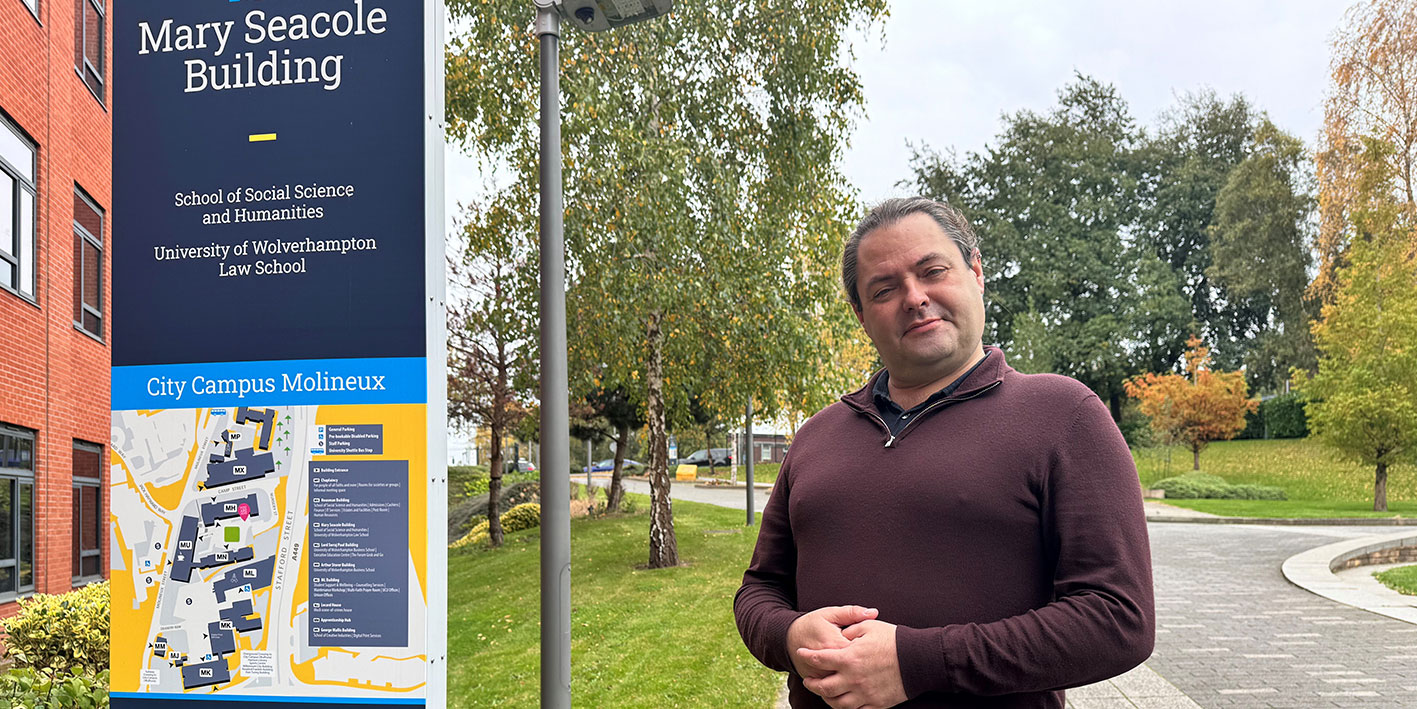
University receives national recognition for regeneration and community role
The University of Wolverhampton is one of the top institutions nationally for local regeneration and engaging with the public and community, according to new data released today.
Research England’s Knowledge Exchange Framework (KEF) looks at the diverse contributions of universities to help level up their local areas.
The data shows the rich contributions English higher education providers (HEPs) make, both economically and socially, on both local and national levels.
It looks at the performance of universities from different perspectives including public and community engagement, working with partners ranging from big businesses to small local firms, and how they commercialise their research.
The University was assessed in a cluster of universities which demonstrate more of a teaching focus and benefiting from research largely funded by government bodies and organisations.
The University of Wolverhampton was identified as having evidenced very high engagement in terms of public and community engagement and local growth and regeneration with high engagement in terms of working with the public and third sector and for IP and commercialisation.
Tim Steele, Pro Vice-Chancellor for International and Regional Development, said: “We are delighted to have received recognition for our role as an anchor institution in our region. The University’s mission and priorities are shaped and informed by local knowledge and partnership engagement.
“Through working with our partners and collaborating, we transform individual life chances for the benefit of our students and our place. This enables us to make a significant contribution to improving the educational, social and economic outcomes for our students and communities across our wider region.”
The University’s KEF submission included examples of key regeneration projects, such as the £100m Wolverhampton Springfield Campus, £9m Midlands Centre for Cyber Security in Hereford and £5m Marches Centre for Excellence in Allied Health and Social Care in Telford which have involved strong partnership working between the University, Local Enterprise Partnerships, local councils and wider partner stakeholder groups from both public and private sector.
The KEF compares institutions on a like-for-like basis, with similar institutions being grouped together with their peers in ‘KEF clusters’ based on factors like their size, specialisation and the intensity of their research activities. This is a more fair and balanced approach that avoids making unhelpful comparisons between incomparable institutions.
The data that underpins the KEF informs a series of metrics covering a wide range of a university’s activities. These then go into seven perspectives, for which each receives a decile score displayed in relation to the average for its cluster.
All institutions in receipt of a Research England Higher Education Innovation Fund (HEIF) allocation in 2021-22 are included in the exercise. Some institutions who were eligible for HEIF but did not meet the threshold for an allocation have still elected to participate in the KEF. The clusters are not ranked, and the KEF is not a league table.
Research England will continue to develop future iterations of the KEF annually. The KEF is not currently used to inform funding.
The website displays all this information in easily interpreted, visually interesting charts and graphs that allow easy comparison of institutions’ strengths. Presenting this information in an easy-to-use way will help them analyse their own performance in a new level of detail.
Find out more about the University's research in these publications:
Research Matters - showcasing our research successes and news from the sector.
The Wolverhampton Briefing - our new quarterly update on our vital research activity.
For more information please contact the Corporate Communications Team.


/prod01/wlvacuk/media/departments/digital-content-and-communications/images-2024/Diane-Spencer-(Teaser-image).jpg)
/prod01/wlvacuk/media/departments/digital-content-and-communications/images-18-19/220325-Engineers_teach_thumbail.jpg)
/prod01/wlvacuk/media/departments/digital-content-and-communications/images-2024/240509-Menopause-Research-Resized.jpg)
/prod01/wlvacuk/media/departments/digital-content-and-communications/images/Maria-Serria-(teaser-image).jpg)
/prod01/wlvacuk/media/departments/digital-content-and-communications/images-2024/241014-Cyber4ME-Project-Resized.jpg)
/prod01/wlvacuk/media/departments/digital-content-and-communications/images-2024/240315-Research-Resized.jpg)
/prod01/wlvacuk/media/departments/digital-content-and-communications/images-2024/BDA-group-photo.jpg)

.jpg)